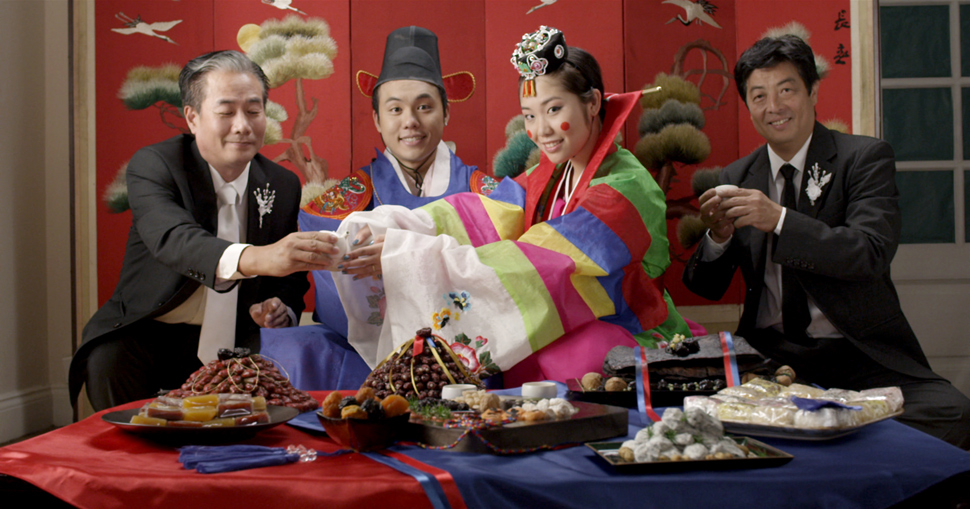
As The Economist once described, “one hundred years ago, Argentina was the future”. Teeming with immigrants and enjoying its status amongst the ten largest economies of the world, Argentina in the early 1900s competed with the United States as a haven for migration and opportunity (at one point it ranked second in the world, behind the US, for immigrant intake). Long story short, thanks to multiple factors including an over-reliance on commodities, today’s immigrants vie for the American Dream, not an Argentine one. Nevertheless, Argentina still retains a diverse flair, and nowhere is that more apparent than La Salada, a large informal market in Buenos Aires; founded by Bolivian immigrants, the market sells black market goods and employs a cacophony of peoples.
Taiwanese-Argentine director Juan Martín Hsu makes his feature debut with a film that owes its name and plot to the market. La Salada (the film) presents three semi-connected narratives that offer tastes of three different cultures within an Argentine context. First there’s Yunjin Kim (Yunseon Kim), a nineteen year-old Korean girl who helps her traditional-minded father (Chang-sun Kim) manage two stalls in La Salada. Next there’s Bruno, a seventeen year-old Bolivian boy who illegally immigrated to Buenos Aires with his uncle; Mr. Kim hires the boy as a shop assistant. Off on his own is Huang (Ignacio Huang), a lonely Taiwanese man who sells pirated DVDs by day and watches them by night.
The main highlight of La Salada is its sheer volume of multiculturalism; it’s 92 minutes straight of salad bowls and melting pots getting dumped into your eyes. As far as I know, La Salada is the only film whose dialog is 30% Spanish, 30% Mandarin, 30% Korean, and 10% Quechua. There’s a huge amount of cultural mixing that occurs in the movie, and Hsu adds some amusing references in that blend. For instance, I almost laughed out loud when Huang started reciting Li Bai’s “Quiet Night Thought” (靜夜思), a famous poem taught to ethnically Chinese children all over the world, when talking to a middle-aged white Argentine lady in a bar. We also see a semi-cameo by renowned Argentine actor Ricardo Darín, as the first pirated DVD Huang watches onscreen is for the 2000 heist film Nine Queens; this was rather droll given actor Ignacio Huang co-starred with Darín in 2011’s Chinese Take-away (I’ve also made the connection between Darín and Nine Queens in my review of The Aura on this site).
Nevertheless, sometimes these cannon blasts of cultural diversity skirt the dangerous line between intriguing and excessive. One scene opens with Mr. Kim and Bruno enjoying soju in a Korean karaoke bar, attempting to bond despite their language barrier (Kim speaks only Korean, and Bruno only knows Quechua and Spanish). In the background blares Teresa Teng’s renowned Mandarin ballad “The Moon Represents My Heart”, an occurrence that prompted someone behind me in the theater (I saw La Salada at Berkeley’s Pacific Film Archive as part of CAAMFest 2015) to whisper “why are they playing a Chinese song at a Korean bar?”
This multicultural reliance strengthens La Salada and makes it a highly interesting piece, but at times it makes the film feel like a one-trick pony. There’s a huge amount of novelty to the unique combination of languages and the Argentine setting, but the film’s themes of immigrant disconnection aren’t necessarily new or innovative, though they’re certainly still quite poignant. La Salada‘s focus on context and diversity also detracts from its plot and character development to a certain extent. There are multiple elements, such as why Yunjin has reservations about her impending marriage, that should’ve been better fleshed out but weren’t, and I left the theater feeling somewhat incomplete after the film’s rather abrupt ending.
Overall, La Salada’s cultural novelty still makes it a recommendable piece; it’s an intellectual and linguistic feast with few close parallels. However, deficiencies in plot mean that it lacks the timelessness and evocative strength that elevate certain films to “epic” status.
La Salada–Argentina. Directed by Juan Martín Hsu. First released April 2014. Running time 1hr 32mins. Starring Yunseon Kim, Chang-sun Kim, Ignacio Huang, Nicolás Mateo, Mimí Ardú, Paloma Contreras, Limbert Ticona, Lizeth Villaroel, and Percy Jiménez.